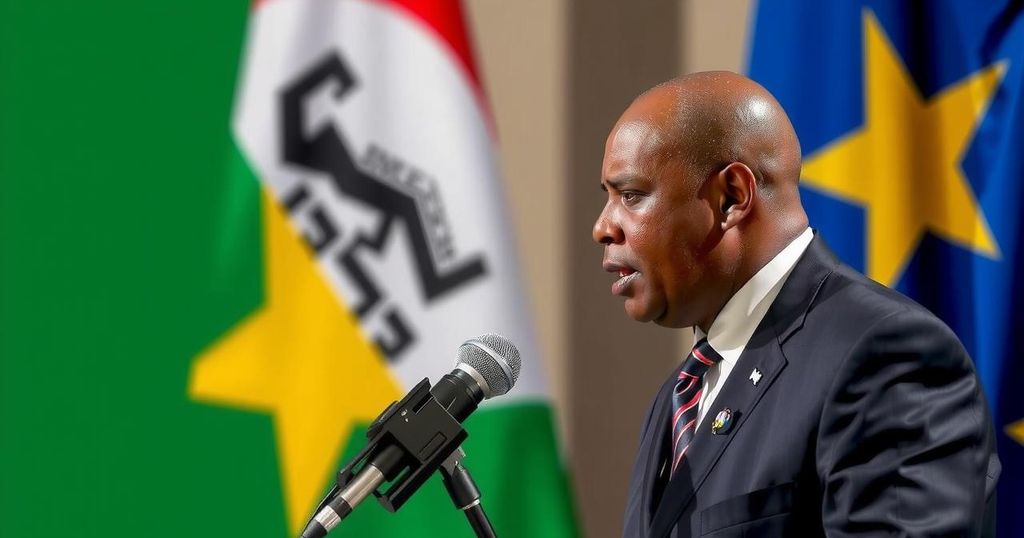President Salva Kiir of South Sudan has reaffirmed the commitment to the Tumaini peace talks, clarifying that they will not replace the existing Revitalized Peace Agreement. He emphasized the importance of bridging gaps with hold-out groups to enhance inclusivity and expedite negotiations. The two-year extension of the transitional period aims to achieve durable peace ahead of planned elections in December 2026, as urgent actions are necessary to address ongoing humanitarian crises in the country.
President Salva Kiir Mayardit of South Sudan has reaffirmed the nation’s commitment to the Tumaini peace negotiations with hold-out groups in Nairobi, clarifying that the talks are not aimed at forming a new agreement nor dismantling the existing Revitalized Peace Agreement. During the 8th annual Governor’s Forum in Juba, he emphasized the intent to bridge the gaps and accommodate the concerns of the hold-out groups within the current framework, ensuring inclusivity to prevent a recurrence of conflict.
Furthermore, President Kiir stated that restructuring the government delegation for the Tumaini talks was necessitated by the urgency to expedite the negotiating process. Nicholas Haysom, the Special Representative of the Secretary-General and Head of the United Nations Mission in South Sudan, expressed regret regarding the decision to extend the transitional period by two years and delay elections, citing insufficient progress on crucial deliverables as the reason.
Haysom called for a clear, actionable work plan, urging the parties to act urgently in meeting their commitments to the South Sudanese populace. President Kiir reassured that the extension is designed to foster lasting peace, reminding political aspirants that they should commence preparation for elections set for December 2026. He cited the need for collective action among leaders to address the underlying causes of conflict while delivering essential services to the communities.
The Governor’s Forum serves as a critical platform for fostering communication and collaboration among national and state leaders as they tackle national challenges, such as humanitarian crises and food insecurity exacerbated by recent flooding and violence. The United Nations reiterated the importance of ensuring unimpeded access for humanitarian organizations to effectively address these pressing needs in South Sudan’s vulnerable regions.
The Tumaini peace negotiations are part of ongoing efforts to achieve stability in South Sudan, a nation that has faced significant challenges since its independence, characterized by persistent conflict and humanitarian crises. The Revitalized Peace Agreement, signed in 2018, aimed to end years of civil war; however, issues remain as certain groups have not signed the agreement. The government’s recent actions, including the restructuring of negotiation teams, reflect a strategic effort to engage these groups and incorporate their perspectives into the existing peace framework to ensure national cohesion and progress towards elections.
In conclusion, the commitment by President Salva Kiir to expedite the Tumaini negotiations signals a significant step towards encompassing all parties in the peace process of South Sudan. The acknowledgment of the need for inclusivity, as well as a clear plan for addressing humanitarian crises, underscores the urgency for political leaders to act decisively. The forthcoming elections in 2026 demand extensive preparatory work, with stakeholders encouraged to prioritize peacebuilding and the delivery of essential services amidst ongoing challenges.
Original Source: www.socialnews.xyz






